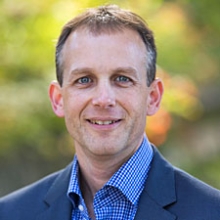Bill Link BME Distinguished Lecturer Series: Lonnie Shea, University of Michigan

Professor and William and Valerie Hall Chair
Department of Biomedical Engineering
Michigan University
Abstract: Systems and strategies for promoting tissue growth provide enabling technologies for either enhancing regeneration for diseased or injured tissues, or to investigate abnormal tissue formation such as cancer. Given the complexity inherent in tissues, my laboratory is working toward the concept of systems tissue engineering, which indicates the dual need to develop systems capable of presenting combinations of factors that drive tissue growth, as well as incorporate systems-biology approaches that can identify the appropriate combination of factors. Biomaterial scaffolds represent a central component of many approaches and provide the enabling tools for creating an environment and/or deliver factors that can direct cellular processes toward tissue formation. We have developed scaffolds with the objective of providing factors to stimulate growth and also blocking factors that inhibit regeneration, and we will illustrate this approach through our work with islet transplantation in type 1 diabetes therapy and scaffolds for the early detection of cancer. The immune response has become a central focus and will present results for local immunomodulation around the scaffold, as well as the development of nanoparticles for modulating the immune response in order to induce tolerance in autoimmune disease and allogeneic cell transplantation. The ability to present multiple factors raises the challenge of identifying the combination that will maximally promote tissue formation. Systems-biology approaches geared toward identifying the critical factors will also be presented.
Bio: Shea served on the faculty of Northwestern University’s Department of Chemical and Biological Engineering from 1999 to 2014. In 2014, Shea moved to the University of Michigan as chair of the Department of Biomedical Engineering. He is an internationally recognized researcher at the interface of regenerative medicine, drug and gene delivery, and immune tolerance, whose focus is controlling the local microenvironment for directing tissue growth or regeneration. His projects include ovarian follicle maturation for treating infertility, islet transplantation for diabetes therapies, nerve regeneration for treating paralysis, autoimmune diseases and allogeneic cell transplantation, and cancer diagnostics. He is also developing and applying systems-biology approaches to molecularly dissect tissue formation and identify key drivers of normal and abnormal growth.
Reception to Follow
Share
Upcoming Events
-
MSE 298 Seminar: Catalyst Design For Clean Energy Technologies
-
MAE 298 SEMINAR: Biomechanics of Rotator Cuff
-
CEE Seminar: BIM and the Digital Twin
-
CEE Seminar: UV-based Treatment Processes for Treatment of Contaminants of Emerging Concern in Context of Water Reuse
-
MSE 298 Seminar: New Platforms For Quantum Sensing and Quantum Computing
